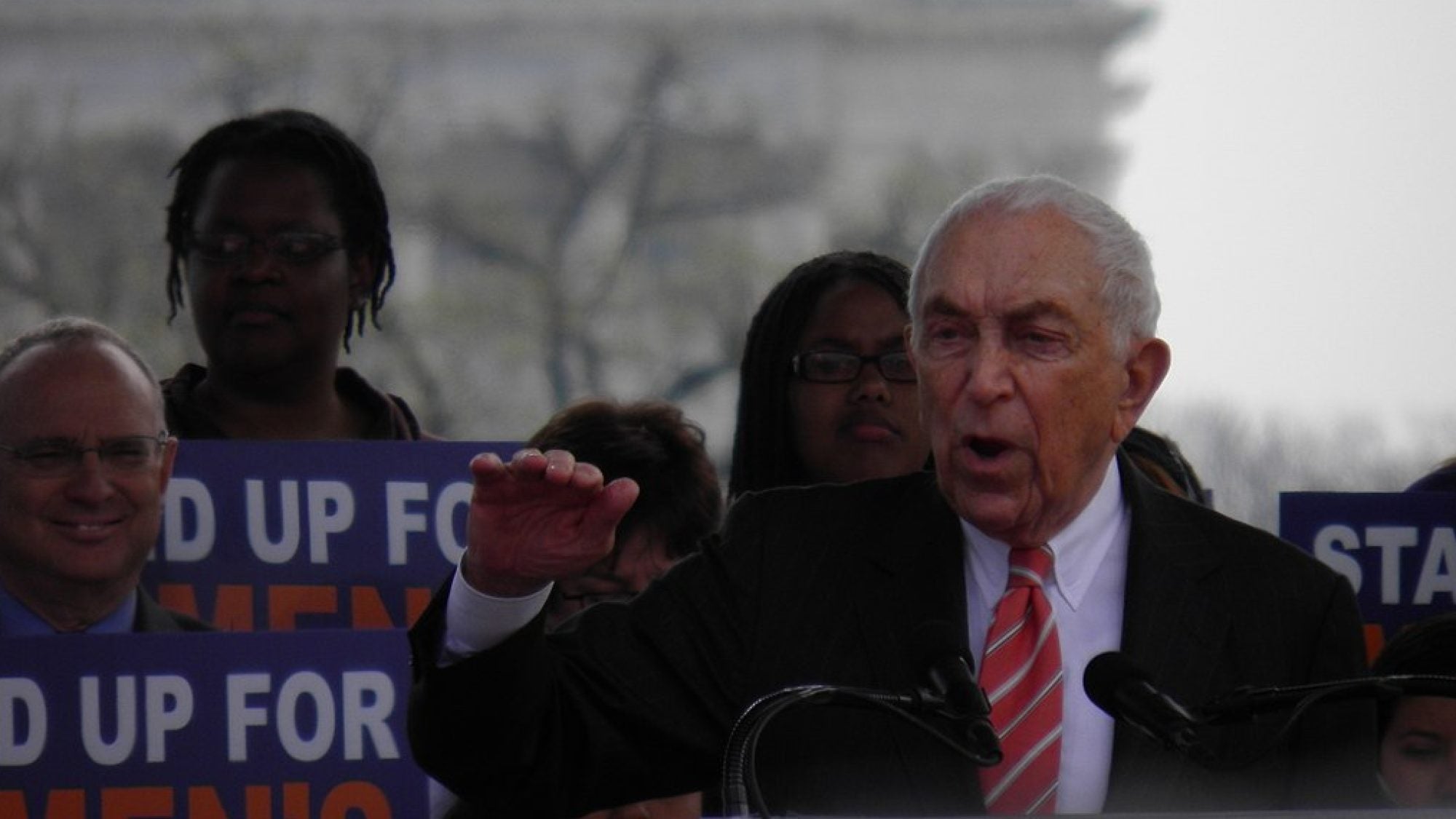The son of immigrants from Poland and Russia, Senator Lautenberg was born in Paterson, New Jersey and served in Congress from 1982 to 2001 and from 2003 until his death on Monday. Lautenberg also was the last World War II veteran serving in the Senate.
From the perspective of advocates of religious freedom abroad, including the U.S. Commission on International Religious Freedom (USCIRF), the senator is remembered best for his sponsorship of the aptly named Lautenberg Amendment.
Given his family background and his wartime role in defeating tyranny, Senator Lautenberg’s support of this important amendment was particularly fitting. First enacted as part of the 1990 Foreign Operations Appropriations Bill, the amendment continues to provide indispensable protections for historically persecuted groups seeking refugee status in America by establishing a presumption of eligibility for their members, permitting fast-track processing, and thus preventing undue backlogs in “third” countries that host their processing. Such processing is vital for those fleeing countries that do not have diplomatic relations with the United States and therefore have no U.S. embassies on their soil. Without such assurances, “third” countries might not provide transit visas allowing the persecuted to be processed on their soil.
For more than a generation, the Lautenberg Amendment has served as a lifeline for Christians, Jews, Baha’is, Mandaeans, and other religious minorities seeking to escape severe religious persecution in Iran and in countries that once comprised the Soviet Union.
The Lautenberg Amendment has been particularly vital for members of religious minorities from Iran, which remains one of the world’s most flagrant religious freedom violators. Since 1999, the United States has designated Iran a “country of particular concern” for its appalling mistreatment of those who have dared to dissent from the ideas and policies of its theocratic government. As USCIRF has documented in our 2013 annual report, religious freedom conditions in Iran actually have worsened for religious minorities, especially for Baha’is, Sufi Muslims, and Christians, with an alarming rise in physical assaults, detentions and arrests, and imprisonment. Indeed, conditions have regressed to a point not seen since the early days of Iran’s Islamic Revolution more than three decades ago.
Simply stated, Senator Lautenberg’s amendment is as necessary today as it was more than a generation ago.
In order for it to remain in effect, the Lautenberg Amendment had to be renewed annually. Given the increasing need for this amendment, which enables our government to help rescue some of the world’s most oppressed people from the clutches of tyranny, we urge members of Congress to make this measure permanent. It would be an ideal tribute to the senator’s memory and a statement to the world community that the United States remains on the side of freedom and dignity and a refuge for the oppressed.
Katrina Lantos Swett is the Chair of the U.S. Commission on International Religious Freedom (USCIRF).
Image Credit: Mike from United States of America, CC BY 2.0 <https://creativecommons.org/licenses/by/2.0>, via Wikimedia Commons
This is an archived article. While every effort is made to conserve hyperlinks and information, GJIA’s archived content sources online content between 2011 – 2019 which may no longer be accessible or correct.

